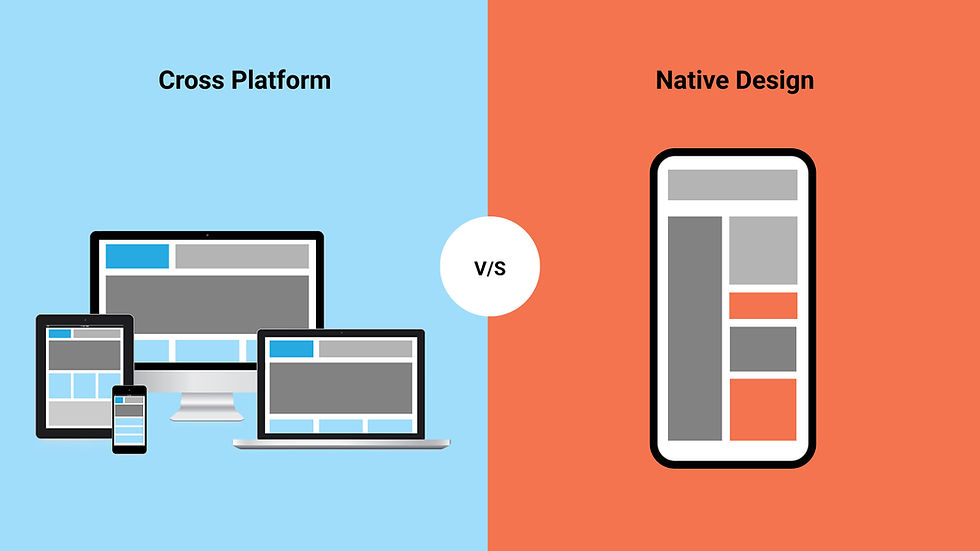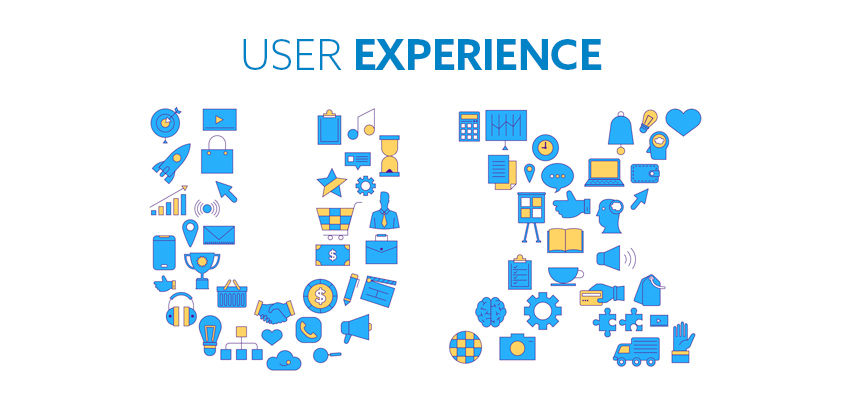Native vs. Cross Platform: A Comprehensive Comparison for App Developers in 2023
- jjohnsonliam1
- May 17, 2023
- 3 min read
Updated: Nov 8, 2023

Choosing the right development approach is crucial for the success of your application. The two primary methods, native and cross-platform development, offer distinct advantages and trade-offs. As we step into 2023, it becomes even more essential for app developers to understand the implications of their choices. In this article, we will provide a comprehensive comparison between native vs cross-platform development, highlighting the key factors that can help you determine the best approach for your app.
Native Development
Native development involves building applications specifically for a single platform, such as iOS or Android. Developers use platform-specific programming languages, frameworks, and tools to create apps that take full advantage of the platform's capabilities.
Native apps offer superior performance, seamless integration with the platform's features, and a highly optimized user experience. However, they require separate development efforts for each platform, resulting in higher costs and longer development timelines.
Cross-Platform Development
Cross-platform development, on the other hand, allows developers to create applications that can run on multiple platforms using a single codebase. Technologies like React Native, Flutter, and Xamarin have gained popularity in recent years, enabling developers to build apps for both iOS and Android simultaneously.
Cross-platform development offers faster development cycles, cost savings, and easier maintenance since a single codebase can be shared across platforms. However, there may be some limitations in accessing platform-specific features, and the performance may not always match that of native apps.
Factors to Consider:
1. Performance

In 2023, the performance gap between native and cross-platform apps has significantly narrowed. Cross-platform frameworks have matured, offering better performance optimization. However, if your app demands heavy graphics or relies on complex calculations, native development may still offer an edge.
2. User Experience

Native apps excel in delivering a seamless user experience due to their tight integration with platform-specific design patterns and features. Cross-platform apps have made significant strides in this aspect but may require extra effort to achieve the same level of consistency and performance.
3. Time-to-Market

If speed is a critical factor, cross-platform development can help you launch your app faster. Sharing code across platforms and leveraging reusable components streamline the development process and reduce time-to-market. However, if you prioritize platform-specific optimizations or need to release on a single platform first, native development might be the better choice.
4. Cost Considerations
Native development often involves higher costs due to separate development efforts for each platform. Cross-platform development can lead to cost savings by allowing a single team to build and maintain the app for multiple platforms. However, the specific requirements of your app and your team's expertise will influence the cost dynamics.
5. Target Audience and Market Share
Understanding your target audience and their preferred platforms is crucial. If your app primarily targets a specific platform or demographic, a native approach might be ideal. However, if your goal is to reach a wider audience across multiple platforms, cross-platform development can help you maximize your app's reach.
Conclusion
Choosing between native and cross-platform development is a critical decision for app developers in 2023. It requires careful consideration of factors such as performance, user experience, time-to-market, cost, and target audience. While native development offers unparalleled platform integration and performance, cross-platform development provides faster development cycles and broader reach. Ultimately, the best approach depends on your specific app requirements, budget, and long-term goals. By weighing these factors, you can make an informed decision that sets your app up for success in 2023 and beyond.



Comments